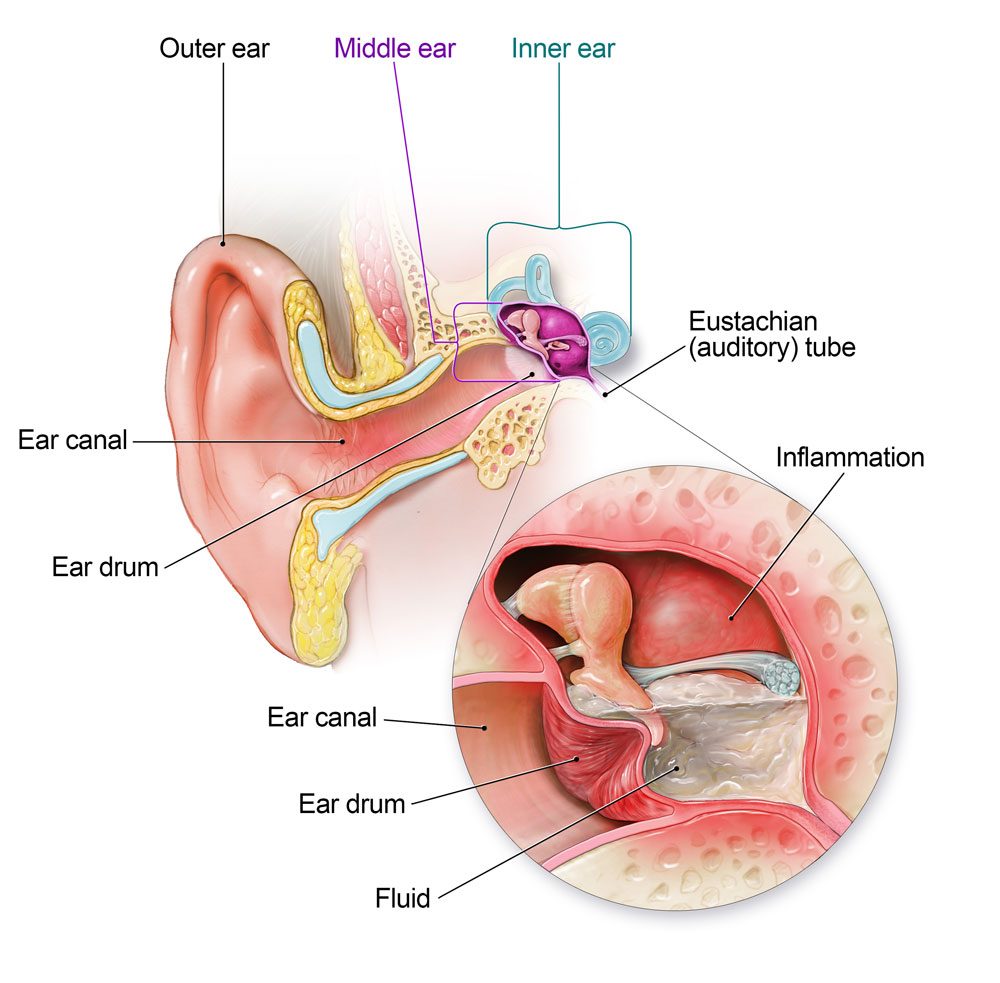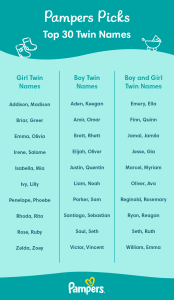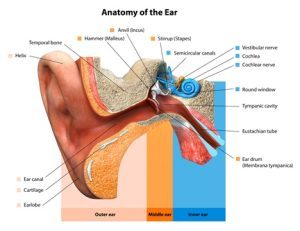Babies get ear infections when bacteria or viruses enter the middle ear through the Eustachian tube, causing inflammation and fluid buildup. This can occur due to upper respiratory infections, allergies, or exposure to secondhand smoke.
Ear infections are a common ailment among babies and can be caused by various factors. The Eustachian tube, which helps regulate pressure and drain fluid from the middle ear, is shorter and more horizontal in babies, making it easier for bacteria or viruses to enter.
Additionally, babies’ developing immune systems are less equipped to fight off infections. Exposure to secondhand smoke, attending daycare, and bottle-feeding in a lying-down position are also risk factors for ear infections in babies. Understanding how babies get ear infections can help parents take preventive measures and seek timely medical attention to ensure their child’s well-being.
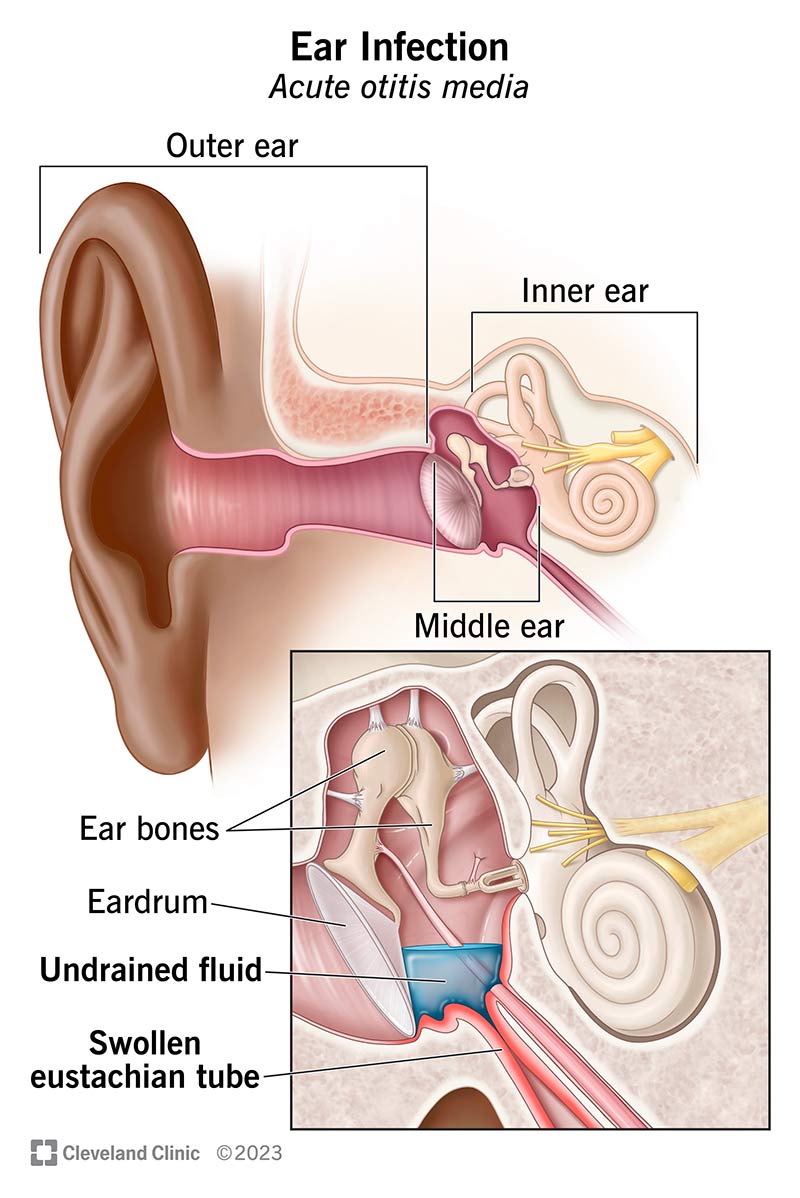
Causes Of Ear Infections In Babies
Ear infections are common in babies and can be caused by various factors. Understanding the anatomy of the ear and the common factors leading to infections is crucial in preventing and managing.
Anatomy Of The Ear
The ear is divided into three parts: the outer ear, middle ear, and inner ear. The middle ear is prone to infections in babies due to its smaller size and horizontal positioning of the Eustachian tube, which can lead to fluid accumulation and bacterial growth.
Common Factors Leading To Infections
- Immature Immune System: Babies have developing immune systems, making them more susceptible to infections, including ear infections.
- Eustachian Tube Anatomy: The Eustachian tube in babies is shorter and more horizontal than in adults, making it easier for bacteria to travel from the throat to the middle ear.
- Exposure to Smoke: Secondhand smoke can irritate the Eustachian tube and increase the risk of ear infections in babies.
- Seasonal Allergens: Allergens can cause inflammation in the Eustachian tube, leading to fluid buildup and increased risk of infection.
- Bottle-Feeding: Bottle-feeding in a horizontal position can lead to milk pooling in the Eustachian tube, creating a breeding ground for bacteria.
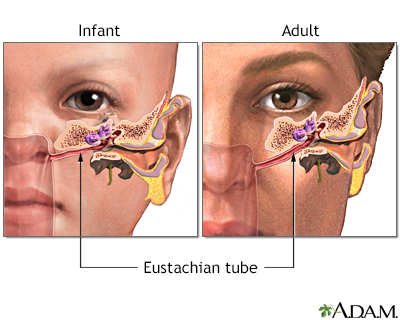
Symptoms Of Ear Infections In Babies
Ear infections in babies can cause symptoms like ear pain, fever, and trouble sleeping. These infections often occur when bacteria or viruses enter the ear through the Eustachian tube, which is shorter and more horizontal in babies than in adults.
Recognizing Signs Early
Symptoms to watch out for:
- Ear pain or tugging at the ears
- Difficulty sleeping
- Frequent crying or irritability
- Baby seems more fussy than usual
- Fluid draining from the ears
- Reduced appetite or difficulty feeding
- Difficulty hearing or responding to sounds
- Balancing problems or clumsiness
Ear infections in babies can be tricky to detect, but recognizing the signs early on is crucial for timely treatment. Keep an eye out for common symptoms such as ear pain or tugging at the ears, difficulty sleeping, and frequent crying or irritability. These signs may indicate an infection brewing in your little one’s ears.
Another red flag is if your baby seems more fussy than usual. Sometimes, this may be their way of communicating their discomfort. Additionally, fluid draining from the ears is a telltale sign that an ear infection is present. Keep an eye out for any changes in your baby’s behavior, as this can provide valuable clues.
Ear infections can also impact your baby’s feeding habits. Reduced appetite or difficulty feeding may be attributed to the pressure and discomfort the infection causes in the ears. Pay attention to any changes in your baby’s eating routine, as this can further indicate the presence of an ear infection.
Babies with ear infections may also experience difficulty hearing or responding to sounds. If you notice your little one becoming less aware of their surroundings or seemingly unresponsive to familiar noises, it’s crucial to consider an ear infection as a possible cause.
Balancing problems or clumsiness may also be attributed to ear infections. The infection can affect your baby’s sense of balance, causing them to exhibit unsteadiness or clumsiness. Observe if your little one appears off-balance or struggles with coordination, as this can signal an ear infection.
When To Seek Medical Attention
If you suspect your baby has an ear infection or notice any of the symptoms mentioned, it is essential to seek medical attention promptly. While some mild ear infections may resolve on their own, others may require medical intervention, such as antibiotics or pain relief medication. A healthcare professional can assess your baby’s condition, provide an accurate diagnosis, and recommend the appropriate treatment.
Remember, early diagnosis and intervention are essential for ensuring your baby’s well-being and preventing any potential complications. So, trust your instincts and consult your healthcare provider if you have any concerns about your baby’s health.
Diagnosis And Treatment
When it comes to diagnosing and treating ear infections in babies, it is important to consult with a pediatrician. A visit to the pediatrician plays a crucial role in identifying the symptoms and determining the appropriate course of action. Let’s take a closer look at the diagnosis and treatment process.
Visiting The Pediatrician
Visiting the pediatrician is the first step in diagnosing and treating ear infections in babies. During the appointment, the pediatrician will perform a thorough examination of the baby’s ears. They will use an otoscope, a specialized instrument, to look inside the ears and identify any signs of infection.
If an infection is present, the pediatrician may also conduct additional tests, such as a tympanometry, to measure the mobility of the eardrum and assess the severity of the infection. This helps the pediatrician determine the most appropriate course of treatment.
Medication And Home Remedies
Once an ear infection is diagnosed, the pediatrician will prescribe the appropriate medication to treat the infection. Antibiotics are commonly prescribed to combat bacterial infections, while pain relievers may be recommended to alleviate any discomfort or pain.
In addition to medication, there are also several home remedies that can be helpful in managing the symptoms of ear infections in babies. These remedies include:
- Applying a warm compress to the affected ear can help relieve pain and reduce inflammation.
- Encouraging plenty of rest and fluids can aid in the healing process.
- Elevating the baby’s head while sleeping can help promote drainage and relieve pressure in the ears.
- Avoiding exposure to secondhand smoke, as it can worsen symptoms and prolong recovery.
It’s important to note that home remedies should not replace medical treatment prescribed by a pediatrician. They can be used as supportive measures to alleviate symptoms and aid in the overall recovery process.
| Diagnosis | Treatment |
|---|---|
| Consulting a pediatrician | Prescribed medication (antibiotics, pain relievers) |
| Physical examination and tests | Home remedies (warm compress, rest, fluids) |
In conclusion, visiting a pediatrician is crucial for the diagnosis and treatment of ear infections in babies. The pediatrician will conduct a thorough examination and recommend the appropriate medication. Alongside medical treatment, certain home remedies can provide relief from symptoms. Following the pediatrician’s advice and providing necessary care will help the baby recover from an ear infection quicker.
Preventive Measures
Preventive measures play a crucial role in reducing the likelihood of babies experiencing ear infections. By incorporating simple yet effective strategies, it is possible to minimize the risk of these uncomfortable and distressing ailments. Implementing good hygiene practices and being mindful of environmental triggers are essential in safeguarding a baby’s ear health.
Importance Of Hygiene
Maintaining good hygiene is fundamental in preventing ear infections in babies. Keeping the areas around the ears clean and dry can significantly lower the risk of bacterial or fungal buildup. Regularly cleaning the outer ear with a soft cloth and ensuring that any earwax is gently removed can contribute to keeping the ears free from infection-causing agents.
Avoiding Environmental Triggers
Minimizing exposure to potential environmental triggers is vital in reducing the likelihood of ear infections in babies. Common environmental triggers include exposure to cigarette smoke, allergens, and pollutants. By limiting the baby’s exposure to these factors, it is possible to create a healthier environment that is conducive to maintaining optimal ear health.
Impact On Development
Babies can get ear infections when bacteria or viruses cause fluid buildup in the middle ear. This can impact their development by causing pain and discomfort, leading to irritability, trouble sleeping, and trouble hearing. It’s important to seek medical attention if you suspect your baby has an ear infection to avoid any long-term effects on their development.
Effects On Speech And Hearing
Babies with ear infections may experience delays in speech and language development.
- Difficulty hearing sounds clearly impacts their ability to mimic and learn words.
- Chronic ear infections can affect their speech clarity and language comprehension.
- Early intervention by a healthcare professional is crucial for addressing these delays.
Long-term Consequences
Untreated ear infections in babies can lead to potential long-term impacts.
- Risk of persistent hearing loss if not properly managed.
- Recurrent infections may cause damage to the ear structures over time.
- Long-term consequences can include speech difficulties and academic challenges.
When To Be Alarmed
Babies are more prone to ear infections due to their small Eustachian tubes. When to be alarmed:
Complications Of Untreated Infections
Untreated infections can lead to complications such as hearing loss and ruptured eardrums.
- Hearing loss can affect a child’s speech and language development.
- Ruptured eardrums may cause pain and fluid leakage.
Consulting With Specialists
Specialists such as pediatricians or ENT doctors should be consulted for persistent or recurrent infections.
- Pediatricians can provide initial diagnosis and treatment.
- ENT doctors may suggest tubes for chronic infections.

What Is The Main Cause Of Ear Infections In Babies?
The main cause of ear infections in babies is often due to bacteria or viruses entering the ear canal.
How Do You Prevent Ear Infections In Babies?
Maintain proper hygiene, avoid exposure to smoke, breastfeed if possible, keep vaccinations up to date.
What Is The Main Cause Of Ear Infections?
The main cause of ear infections is often bacterial or viral infection in the middle ear. Other factors such as allergies, respiratory infections, and excess fluid can also contribute to the development of ear infections. Prompt treatment can help prevent complications and alleviate symptoms.
Can Baths Give Babies Ear Infections?
Baths do not directly cause ear infections in babies. However, frequent exposure to water in the ears can increase the risk of infections. It’s important to keep the water out of the ears during baths by using earplugs or gently tilting the baby’s head to the side.
Conclusion
Understanding how babies get ear infections is crucial for early intervention. By recognizing the causes and symptoms, parents can take proactive steps to prevent and treat these common ailments. Seeking medical advice and following preventive measures can help ensure the health and well-being of infants.
Stay informed, and keep your baby healthy.

